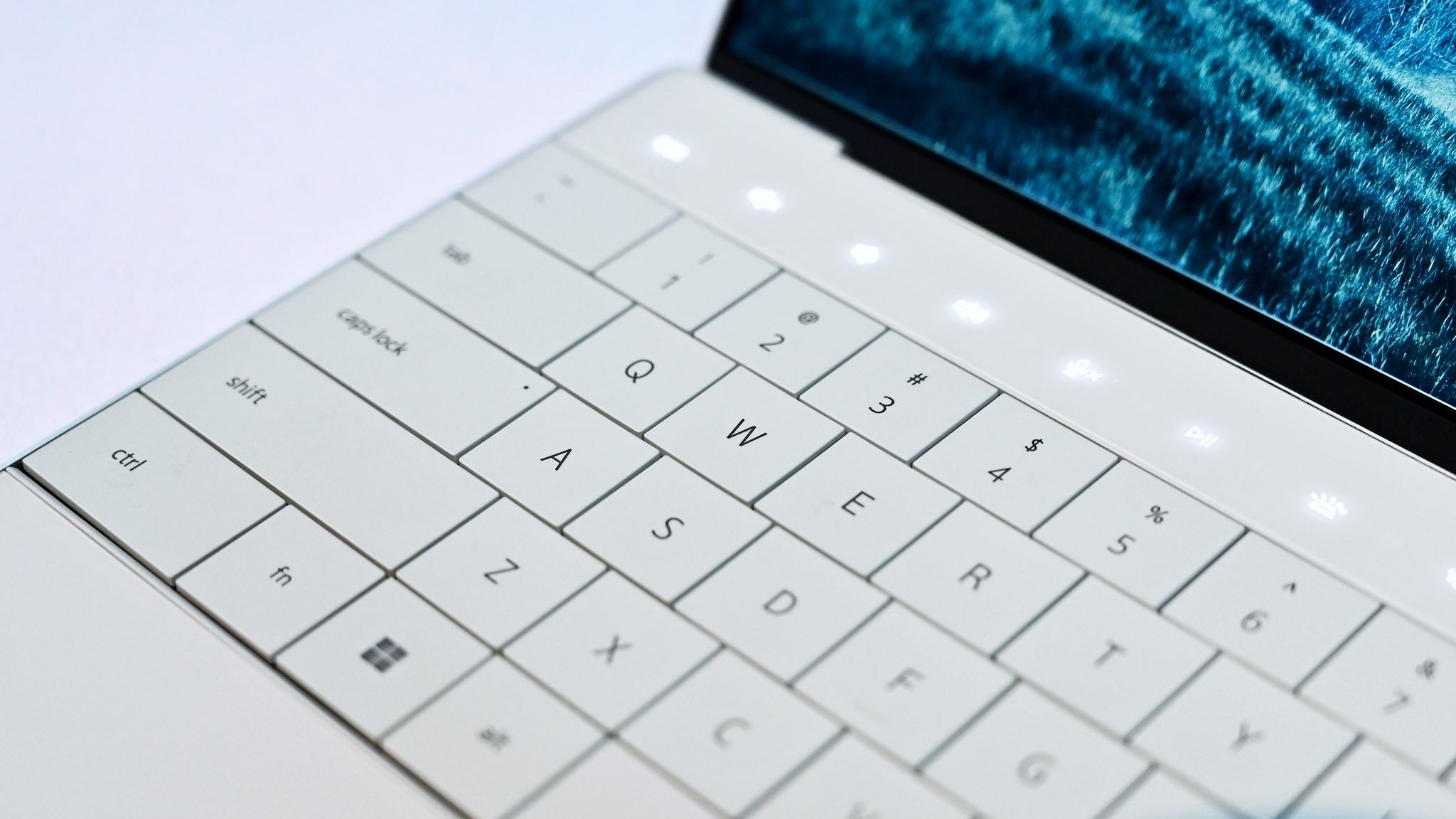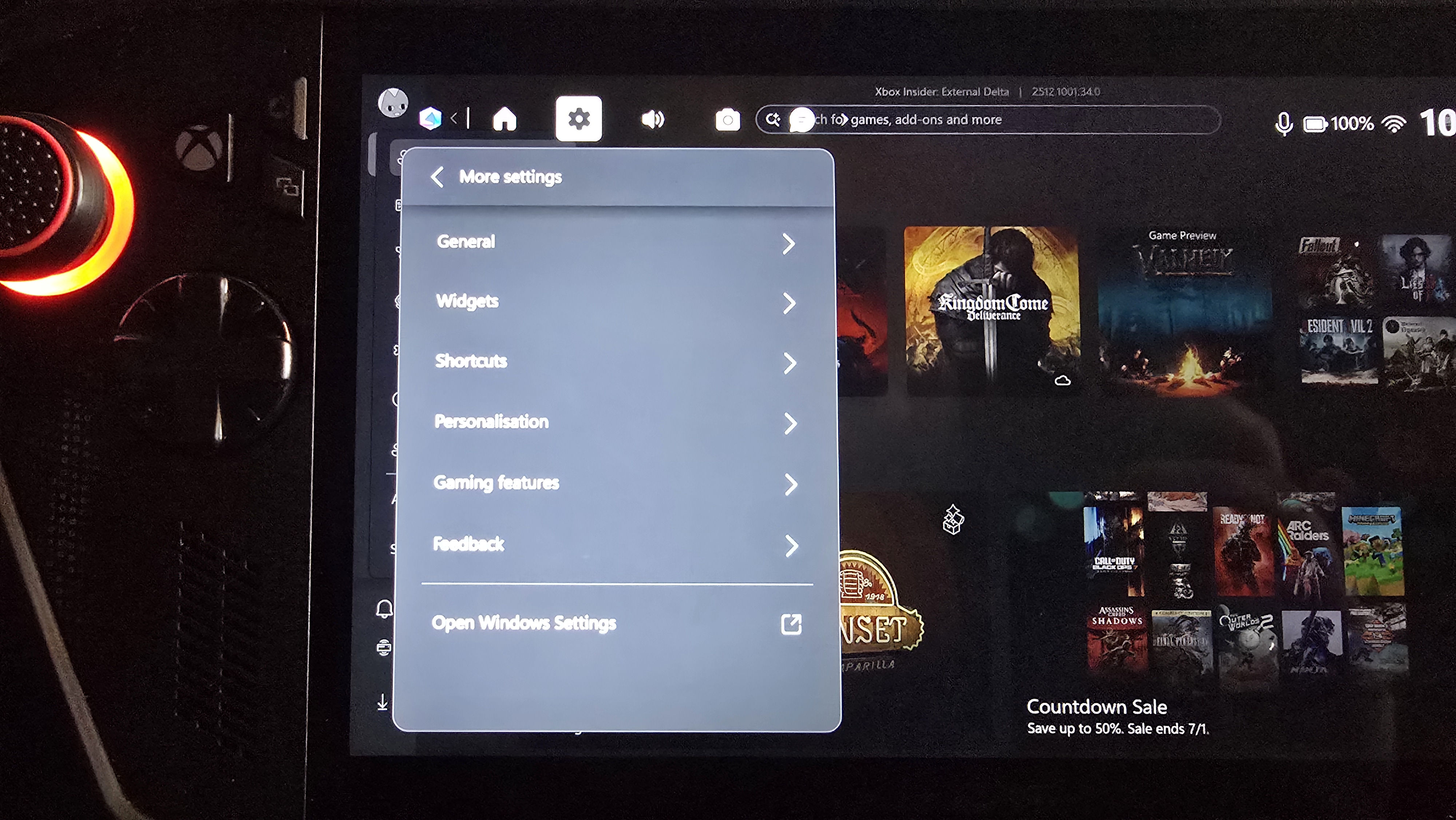Dell's XPS 13 powered by a Qualcomm X Elite just launched, but how does it compare to the Intel Core Ultra model?
You can now buy a Dell XPS 13 with either a Snapdragon X Elite or an Intel Core Ultra CPU.
All the latest news, reviews, and guides for Windows and Xbox diehards.
You are now subscribed
Your newsletter sign-up was successful
Dell just launched its first PC featuring a Qualcomm Snapdragon X Elite processor. The latest XPS 13 features the Arm chip, promising performance, efficiency, and all-day battery life. The design of the XPS 13 lineup was refreshed earlier this year, and that design now includes options powered by Intel Core Ultra CPUs or Qualcomm's Snapdragon X Elite processor. The Dell XPS 13 with a Snapdragon X Elite starts at $1,299.99 and can be ordered from Dell's website starting today.
Dell XPS 13 (Snapdragon X Elite) | from $1,299.99 at Dell
The XPS 13 now pairs its modern design with a Qualcomm Snapdragon X Elite processor. The Copilot+ PC features a zero-lattice keyboard, large haptic touchpad, and a row of LED function keys. It also has an edge-to-edge display, packing in a larger screen than you'd expect from the size of the PC's body.
Dell XPS 13 (Intel Core Ultra): From $1,299.99 at Dell
The XPS 13 has been on a journey into modern computing over the last several years. The flagship laptop from Dell's XPS lineup was never old, perse, but its design had stagnated. That changed in 2022 when the company released the XPS 13 Plus featuring a zero-lattice keyboard, haptic touchpad, and haptic row of function keys. The company sold the XPS 13 and XPS 13 Plus alongside each other for a while before shifting the entire XPS 13 lineup to the new design.
The gradual shift of the XPS 13 lineup from the older design to the modern one created a strange period where there were at least four types of XPS 13 laptops available at a single time. That situation has cleared up a bit, at least on Dell's website. If you search for "XPS 13" on Dell's website the only versions of the laptop you'll see are the Intel Core Ultra models and the Qualcomm Snapdragon X models.
All of XPS 13 models that appear on Dell's website now have a Snapdragon X Elite. Specifically, a Snapdragon X Elite X1E-80-100 powers all of the PCs. RAM options start at 16GB and range up to 32GB. Storage configurations see a similar jump, starting at 512GB and then doubling to 1TB.
You can choose between an FHD+ display with a 1920x1200 resolution or bump up to the QHD+ 2560x1600 version. The best panel for you depends on your workflow and needs from a laptop.
Intel Core Ultra vs Qualcomm Snapdragon X Elite

With Intel and Qualcomm versions of the XPS 13 now available, the natural question is which should you get? Without knowing your specific workflow and requirements, it's difficult to say for sure. The reality is that both the Intel Core Ultra and Snapdragon X Elite versions of the XPS 13 are great laptops.
Intel Core Ultra processors are x86 chips, meaning they can run just about any app you can think of natively. If you use business applications or programs that you know will have to run through emulation on a Snapdragon X Elite PC, that could make the Intel Core Ultra model of the XPS 13 a better choice. Snapdragon X Elite-powered PCs can run the majority of x86 apps through emulation, but emulated apps are never going to run as efficiently as native applications.
RELATED: Should you buy a Snapdragon Copilot+ PC or wait for Intel, AMD, and NVIDIA?
The XPS 13 with a Snapdragon X Elite is a Copilot+ PC, meaning it has exclusive AI features. The Neural Processing Unit (NPU) in the XPS 13 with a Snapdragon X Elite is optimized for AI tasks such as live captions with translation, enhancing videos with Windows Studio Effects, and upscaling games automatically with Auto Super Resolution.
Running on a Snapdragon X Elite should deliver better efficiency and battery life, so if you value all-day performance, the XPS 13 with a Snapdragon X Elite is a better choice.
The XPS 13 is not a gaming laptop, but if you do plan to game on your PC, the Intel version of the machine is a better option right now. Some games can run through emulation on the Snapdragon X Elite, and there are even some titles that run natively on Windows on Arm laptops, but Intel chips provide a much better gaming experience today.
We're spoiled for choice when it comes to XPS 13 models in 2024. Both the Qualcomm and Intel versions of the device have respective strengths and weaknesses. All of them have a modern design, sleek finish, and lovely displays. The Snapdragon X Elite-powered XPS 13 laptops just arrived on Dell's website today and start at $1,299.99. If you prefer an Intel version, they also start at $1,299.99 at Dell.
All the latest news, reviews, and guides for Windows and Xbox diehards.

Sean Endicott is a news writer and apps editor for Windows Central with 11+ years of experience. A Nottingham Trent journalism graduate, Sean has covered the industry’s arc from the Lumia era to the launch of Windows 11 and generative AI. Having started at Thrifter, he uses his expertise in price tracking to help readers find genuine hardware value.
Beyond tech news, Sean is a UK sports media pioneer. In 2017, he became one of the first to stream via smartphone and is an expert in AP Capture systems. A tech-forward coach, he was named 2024 BAFA Youth Coach of the Year. He is focused on using technology—from AI to Clipchamp—to gain a practical edge.

